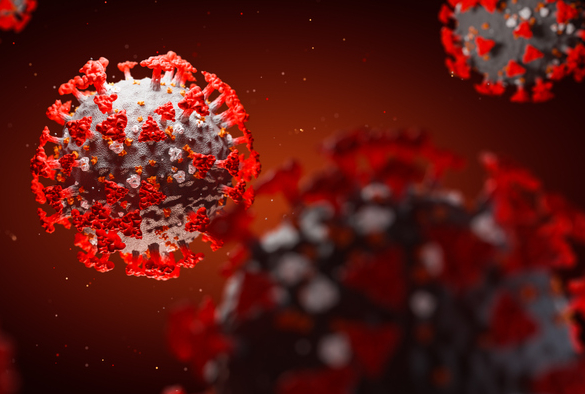Selenium-based compounds target SARS-CoV-2 with unusual inhibition mechanism of its main protease
Published on

Scientists have discovered a new mechanism of inhibiting a critical enzyme of the SARS-CoV-2 virus, demonstrating the on-target engagement of novel selenium based compounds.
An international team of researchers led by the University of Liverpool has shown that a selenium-based drug-molecule called ebselen and a number of derivative compounds can halt SARS-CoV-2 replication by targeting its main protease Mpro. Their findings are published in the journal Nature Communications.
Global control of the COVID-19 pandemic replies on the availability of effective medicines and vaccines. Drug development for COVID-19 has been speeded up with repurposing numerous established therapeutic compounds for treating SARS-CoV-2.
SARS-CoV-2 replication in human is dependent on viral enzymes. Inhibiting one of those critical enzymes can stop coronavirus infection. SARS-CoV-2 main protease (Mpro) is one of the enzymes considered as an interesting target for the development of anti-coronaviral compounds.
A team of researchers from the University of Liverpool, ShanghaiTech University and Wuhan Institute of Virology have focused on the repurposing of ebselen and derivative compounds developed at Liverpool for COVID-19 treatment. They have demonstrated the potentials of the compounds to be lead candidates with strong inhibition against SARS-CoV-2 Mpro and potent ability to rescue SARS-CoV-2 infected primate cells. Moreover, the team also revealed unusual inhibition mechanism of this selenium-based compounds that donate selenium atom to inactivate Mpro function and eventually kill the virus.
Professor Samar Hasnain, Max Perutz Professor of Molecular Biophysics at the University of Liverpool, who led the international team of interdisciplinary experts said: “This is an important finding that helps understand how the compounds work with the target protein and could guide the future development of this class of compounds to be potent candidates in fighting COVID-19”.
Professor Paul O’Neill, University of Liverpool, who led the medicinal chemistry programme said: “Our medicinal chemistry approach, guided by protein-ligand crystallography studies, focused on the design of ebselen based analogues have produced sub micromolar inhibition of the key enzyme of the virus is good news with significant potential for the development of an effective drug.”
Professor Leike Zhang from Wuhan Institute and Professor Haitao Yang from ShanghaiTech added that “these compounds are some of the best compounds we have tested against the virus” and “this international collaboration is another important step to discover potent inhibitors against COVID-19.”
Lead author Dr Kangsa Amporndanai, a research associate at the University of Liverpool, said: “The fact that this new generation of organo-selenium compounds target cysteine of the main protease so effectively, arresting the virus ability to replicate is good news for boosting a second line of defence against this virus.”
The work was supported by the grant from Biotechnology and Biological Sciences Research Council (BBSRC)’s Impact Acceleration Account (IAA) scheme. Some development also arose from a grant from the ALS Association.
Research reference:
Amporndanai, K., Meng, X., Shang, W. et al. Inhibition mechanism of SARS-CoV-2 main protease by ebselen and its derivatives. Nat Commun 12, 3061 (2021). https://doi.org/10.1038/s41467-021-23313-7